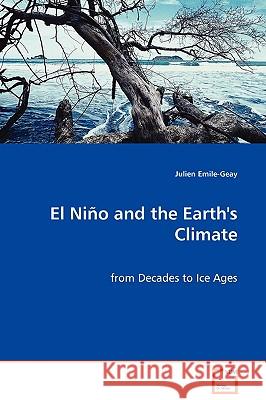El Niño and the Earth's Climate - from Decades to Ice Ages » książka
El Niño and the Earth's Climate - from Decades to Ice Ages
ISBN-13: 9783639069754 / Angielski / Miękka / 2008 / 184 str.
The dominant paradigm of paleoclimatology holds that fluctuations in the oceans' meridional overturning circulation can explain most past climate changes. There is, however, acute recognition of the importance of tropical Pacific sea-surface temperatures in orchestrating modern climate variability on timescales longer than a few years, epitomized by the El Nino - Southern Oscillation phenomenon (ENSO). This book investigates a subset of mechanisms whereby low-frequency variability is produced within the tropical Pacific and exported to the rest of the globe. We first develop an analytical theory of decadal changes in the tropical Pacific, making the case that local air/sea interactions can account for the observed variability. Next we use a model of intermediate complexity to explore the response of the ENSO system to changes volcanic and solar forcing over the Holocene. In both cases we confront our model predictions to the paleoclimate record. We close by a study of ENSO teleconnections during the last Ice Age. This work is aimed at scholars and graduate students in climatology interested in theories of tropically-driven climate change, with equal emphasis on models and data."











